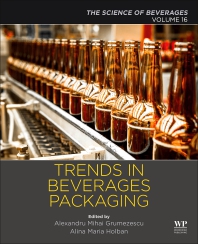The beverage landscape is populated with a variety of choices presented in an array of packaging shapes and sizes. What may be a land of opportunity for consumers presents a challenge for beverage-makers, especially facilities that produce many products. For those companies, the option of bringing plastic bottle manufacturing in-house is one that offers advantages for the flexibility of their business, says Dave Raabe, director of blow molding for North America and key account for converter business of Krones USA, Franklin, Wis.
“Being able to adapt to their customer needs at a faster quantity and faster number with smaller inventories is a big plus,” Raabe says.
In the past few years, Krones USA has worked with companies large and small that are investing in self-manufacturing of plastic bottles. In-house production can help a company reduce its carbon footprint, not only with efficient equipment, but also by cutting down on transportation of pre-manufactured bottles, Raabe says. The machines also can produce lightweighted bottles, he adds.
This year, Krones introduced the MouldXPress Advanced, which decreases the changeover time for molds in its Contiform blow molder. The MouldXPress Advanced is semi-automatic and shortens the changeover time to less than one minute per blow molding station, the company says. The system can be used between S16 through S28 series of Contiform blow molding machines.
Sidel Inc., Norcross, Ga., developed its latest generations of SBO Universal machines, including the SBO Universal 2 blow molders, which have an output of 2,000 bottles per mold per hour, the company says. The SBO Universal 2 blow molder has the same heating reserver already available for the SBO Universal range with a 50 mm. pitch to ensure sufficient heating time. The machine also uses new lamps that decrease energy use up to 10 percent, Sidel says.
Sidel also offers an optional eQuick Change system on the SBO Universal 2 that provides an ultra-fast connection of the cooling circuit to the mold neck with one click. In less than five seconds per mold, the piping that feeds the neck circuits with water and the electrical cables for the temperature probes are connected and disconnected, which offers a 50 percent time savings when compared to the company’s Quick Change version. The system also can be adapted to all of Sidel’s latest generation blow molders.
Combination advantages
The latest advancement for in-house plastic bottle manufacturing is combining a blow molding machine with attached fillers or labelers. At Drinktec 2009, Krones introduced its Ergo bloc, which includes a bottle blower, labeler and filler in one line.
“It allows you to have a smaller footprint when it comes to square footage in manufacturing,” Raabe says. “It also reduces your man-power to one operator running all three pieces of equipment at a very high rate of efficiency. It’s allowing the technology to do a lot of the labor force’s hard work ... and getting a better quality product.”
The Ergo bloc features an integrated servo-drive concept that can electronically synchronize itself after one of the three machines goes down, Raabe says. Krones also incorporated complete visualization systems across all three machines, including a new cap feed system with visual inspection to detect defects in the closures.
In addition, Krones created a preform unscrambler that has a wide range of vertical integration on controls for greater flexibility in adjustments and maintaining different sizes, Raabe says. It also engineered a screen system that can operate all three pieces of equipment from a single screen. Combination machines like the Ergo bloc will become increasingly popular, Raabe says.
“We see a future in this technology, meaning the same rapid speeds, but higher reliability and stabilizing your efficiencies in a total, sustainable unit,” he says.
In March, KHS USA Inc., Sarasota, Fla., introduced its redesigned KHS stretch blow molder/filler InnoPET Blofill. The updated InnoPET Blofill is based on a new modular monoblock concept and contains the KHS Corpoplast InnoPET Biomax Series IV stretch blow molder. The new stretch blow molder/filler is capable of processing a wide range of plastic bottles at speeds up to 72,000 PET bottles per hour, the company says.
Debuted at Drinktec, the Corpoplast InnoPET Biomax Series IV stretch blow molders are equipped with a new heater that nearly halves the time required to heat preforms compared to the previous generation of the machine, KHS says. The blow stations also are controlled by servo motors, which can optimize the weight of preforms to the last tenth of a gram of PET material, the company says.BI
Related Links:
Operations: Bottling conveyor solutions respond to industry demands
Operations: Palletizers feel the squeeze
Get our new eMagazine delivered to your inbox every month.
Stay in the know on the latest beverage industry marketplace trends.
SUBSCRIBE TODAY!Copyright ©2024. All Rights Reserved BNP Media.
Design, CMS, Hosting & Web Development :: ePublishing

